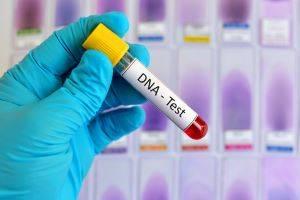How DNA Testing Simplifies—and Complicates—Paternity in Illinois
Posted on August 21, 2020 in Paternity
 You might think being able to use science to determine paternity with absolute certainty through DNA testing would make family law cases much easier, especially when it comes to defining child custody, child support, and parenting time. However, the truth is that it can actually complicate things even more than intended. Here is how introducing DNA testing into the legal process has changed paternity, fatherhood, and father's rights:
You might think being able to use science to determine paternity with absolute certainty through DNA testing would make family law cases much easier, especially when it comes to defining child custody, child support, and parenting time. However, the truth is that it can actually complicate things even more than intended. Here is how introducing DNA testing into the legal process has changed paternity, fatherhood, and father's rights:
Why Paternity Is So Complex, Especially Now With DNA Testing
Paternity has always been a complex issue, but before DNA testing, according to the law, it was relatively simple: if you were married, and your wife had a baby, you were considered the father. However, as many people know—and even knew then—it is rarely that simple in actuality. Now that medical technology has caught up with the dilemmas surrounding paternity, DNA testing has provided the courts with an exact, indisputable science to determine the identity of a child’s father.
You might think this has made things easier, but it has actually caused great cognitive dissonance for many fathers. A father may spend years thinking a child was his and raising that child as his own, only to discover during the divorce process that he is not the child’s biological father. He would not want to disrespect and lose that beautiful relationship with his son or daughter just because he did not want to be responsible for child support payments. At the same time, he may feel a sense of resentment when paying support for a child that was not even his. What is a father to do?
In complicated cases like these, a man may have spent his entire marriage thinking a child is his and caring for that child like his own. If, during the divorce process, his wife opens up about the possibility that the child is not his, a DNA test can provide undeniable proof of paternity. The man will then have to come to terms with the fact that his relationship with the child was based on a lie. This can cause conflict to escalate during divorce, especially regarding child support, but he may feel torn due to his relationship with the child. After all, it is not the child’s fault that their mother lied to the family for all of those years.
All of this raises questions about the definition of a father—is fatherhood based more on genetics or the actual act of parenting? A strong argument can be made on both sides. In Illinois, that very question is posed in courtrooms across the state every day. A man may be considered a legal father because of his marriage to the child’s mother, and yet a DNA test can prove otherwise. While such a test can disprove paternity with absolute certainty, it may also be used to justify a father no longer being involved in a child’s life, no matter how close he has grown to the child throughout his marriage.
Contact Our DuPage County Father’s Rights Attorneys
While DNA tests can prove or disprove your paternity, they cannot necessarily invalidate your fatherhood. Whether you are looking to address child support during your divorce, or you want to ensure that you will be able to maintain a relationship with the children you helped raise, give a Wheaton IL paternity lawyer a call at 630-871-1002 for a free consultation. The attorneys of Andrew Cores Family Law Group can help you protect your rights, and we will work with you to resolve these complex cases in a way that protects a child’s best interests.
Sources:
https://www.nytimes.com/2009/11/22/magazine/22Paternity-t.html
https://www.illinois.gov/hfs/ChildSupport/FormsBrochures/Pages/hfs3282.aspx
https://www.childwelfare.gov/pubPDFs/putative.pdf







 You might think being able to use science to determine
You might think being able to use science to determine 
